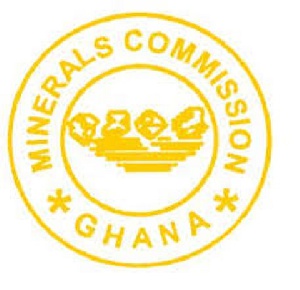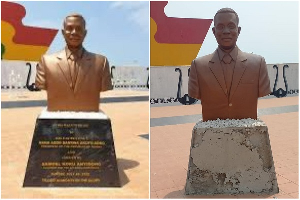The Minerals Commission has invested GH¢6,570,000 in the development of oil palm plantations at Birim Central Municipality to provide alternative livelihoods to residents of the area.
According to Chief Executive Officer of the Commission, Martin Ayisi, the plantations, which were under the Alternative Livelihood Project (ALP) being implemented by the Commission, formed part of efforts to curb illegal mining activities within the Municipality.
At a meeting including Board Members of the Commission and beneficiaries of the project in Accra yesterday to deliberate on the prospects of the project in the Birim Central Municipality, he said, so far about 3,000 persons have been directly employed while 6,000 others have benefitted indirectly.
Since 2020, he stated that 438,000 oil palm seedlings have been supplied to the farmers in the area, resulting in the cultivation of 2,628 hectares of land.
Mr. Ayisi said the Commission was undertaking similar projects in some other mining communities in the Eastern, Central, Western, Ashanti, and Upper East regions.
The Commission, he noted, had signed a Memorandum of Understanding (MOU) with Juabeng Mills in the Eastern Region to serve as an off-taker for the oil palm produced within the Birim Central Municipality.
“This arrangement will ensure that farmers have a market for the oil palm produced while the Minerals Commission intensifies efforts to partnerships for the establishment of a mill factory for the area,” the Chief Executive Officer noted.
In the meantime, he said, the Commission would make available the needed resources and collaborate effectively with all stakeholders to ensure alternative livelihood projects were tailored for the communities to encourage participation.
The Director of the Department of Agriculture, Birim Central Municipal Assembly, Isaac Mann, said, the ALP had been critical in dealing with illegal mining in the area by serving as an alternative source of livelihood to the beneficiaries.
He noted that seven communities within the Municipality partaking in the plantation programme would be grouped into farmer groups to strengthen their bargaining power.
Additionally, he said, the Assembly would seek certification for them to supply mills in the country for increased income.
Nana Amoah Daadom, Akyem Asene Gyasehene, said, the project had led to the eradication of illegal mining in the area saying that “all our lands have been used for oil palm production.”
He stated that Ghana stands to effectively end illegal mining if oil palm cultivation was expanded to all mining communities across the country.
He asked the government to expedite work on plans and strategies to establish a mill factory to enable the processing of oil palm in the country.
One of the beneficiaries, Ama Henewaa expressed gratitude to the Commission for implementing the initiative saying “the oil palm plantation has been a relief to us and given us the opportunity to earn some income.”
Business News of Sunday, 5 February 2023
Source: ghanaiantimes.com.gh

















